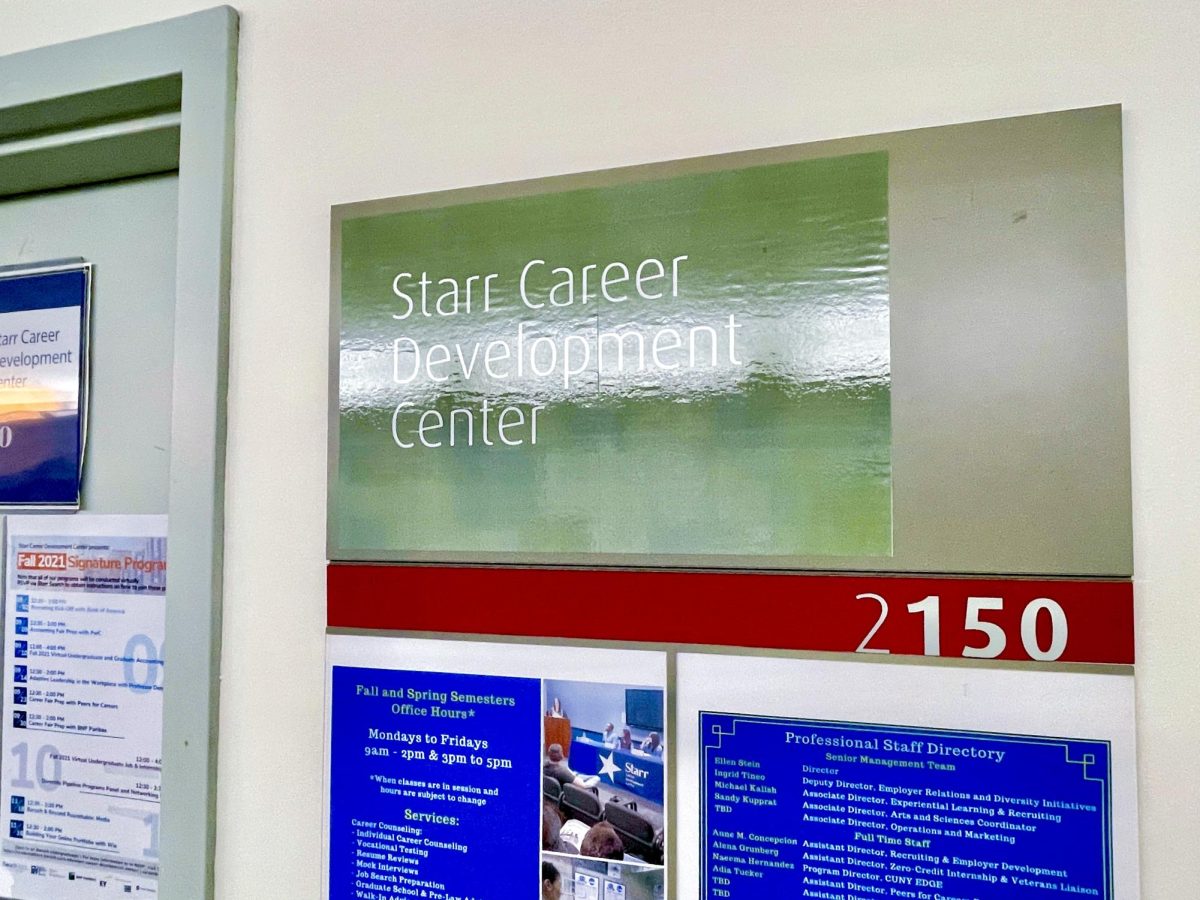While initiatives are already in place to help students, a Baruch-wide partnership focusing on internship pipeline programs is necessary to help students academically and get a job post-graduation.
According to the most recent graduate outcomes report, 7% of Baruch College graduates are still searching for employment and are not in graduate school. Individual academic departments must evaluate their students’ interests and develop different programs, internships and initiatives for their students.
Additionally, more communication should be happening between the Starr Career Development Center and the departments.
The Starr Center is a general resource for Baruch, but the school has nearly 20,000 students, so a partnership fostering closer relationships between students and advisors will be valuable.
Additionally, Handshake is a resource available to students where they can sign up without experience and have one-to-one conversations with employers. Recruiters will also reach out, yet the job platform is geared more toward students in the Zicklin School of Business because of its array of business fields.
Professors in each department can work to facilitate specific industry opportunities, especially for non-business majors, since professors in the humanities and social sciences have connections within those fields.
For example, CUNY Service Corps connects students to programs where they can make impactful differences in communities that create a greener and healthier future. Similarly, the Cultural Corps gives students opportunities in the arts and culture industries.
These initiatives are much needed and appreciated but Baruch’s three schools and individual departments should be responsible for internship placement and be more involved with students’ college pathways.
Additionally, the Baruch-wide partnership could push for more on-campus recruiting that covers an array of industries. Job fairs tend to cater to business students just because Baruch is known as ‘CUNY’s business school.’ Still, the partnership would consider those in the Weissman School of Arts and Sciences and the Marxe School of Public and International Affairs.
Prioritizing internship programs is essential because internships are a huge factor in getting a job post-graduation. Students must be able to say they have experience when they have an interview.
Rather than directing students to the Starr Center when they have questions about the process, professors and advisors from the student’s specific department should help them along the process.
Hostos Community College recently offered a game design program where six students could create their own video game. The game design program was proposed after a staff member noticed that HCC graduates needed to get job opportunities after graduation due to a lack of real-world experience.
A similar thing should happen at Baruch, where staff members and students can work together to develop programs that help students build specific skills for working in their desired industry.
The college experience isn’t just about academics; it’s also about getting real world experience. Baruch’s internship pipeline programs can transition from a tool for students to use to more usable skills in the workplace.







